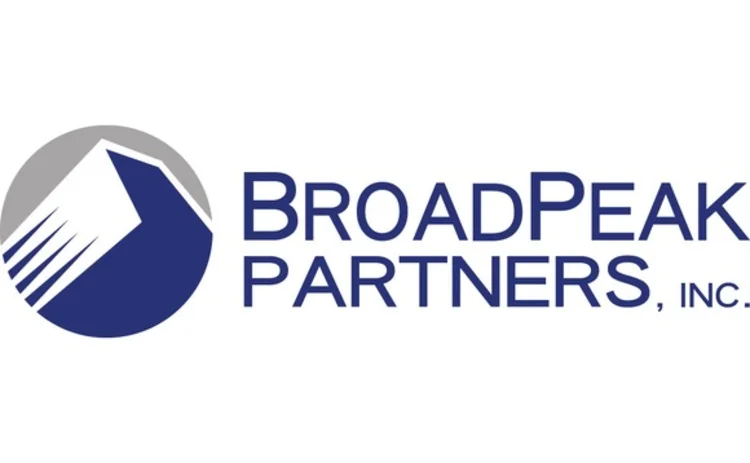
Corporate statement: BroadPeak Partners

The formation of a new regulatory environment for energy traders under the 2010 Dodd-Frank Act has resulted in a long list of requirements for compliance entities, and the regulations have yet to be finalised. For many such companies, ensuring the correct systems are in place to report over-the-counter (OTC) trades to an approved swap data repository (SDR) will be a priority. As a result, developing a flexible, reliable system to manage trade connectivity will be crucial.
The new rules require traders to send information on OTC trades from their own trading systems to SDRs. This sounds simple enough, but it will require companies to translate data from in-house systems into the format required by the SDR in question. To complicate matters, the company itself may have multiple systems, each using a different format to record trades.
An additional problem, according to Gordon Allott, president of BroadPeak Partners, is that many energy companies are not yet taking Dodd-Frank compliance seriously enough. “I think a lot of trading shops are short-changing Dodd-Frank requirements,” he says. “We talk to many who really have not given it much thought or don’t even know that they may have some compliance requirements.” Allott adds that taking a wait-and-see approach to Dodd-Frank compliance and exchange connectivity could come at a very high cost as reporting deadlines approach. “There has never been more of a need to focus on the trade inbound and outbound process because these changes are coming so fast and furious.”
But traditional custom-code integrations are often time-consuming, cumbersome to manage and expensive. Take, for instance, a situation in which a developer connects two systems with a custom-code, point-to-point interface. “We call that a dark interface because the interface logic is buried in code. That method is fine,” Allott says. “But, every time the business wants to trade a new product, the programmer has to get into the code, make the changes, test and then push back into production. One little change can take as much as a week, but businesses need to start trading that day.”
As such, even after energy companies have mastered SDR reporting methods, future changes in the regulatory landscape or even in terms of the business itself could throw trading systems back into disarray until the code can be tweaked again. “What is certain is that things will change in terms of what the SDRs are asking for and in terms of the scope of products – the list is endless,” Allott says.
This is where BroadPeak Partners’ K3 Server comes in, according to Allott. It provides low latency connections to InterContinentalExchange’s Trade Vault (the only SDR so far approved by the regulator to collect commodities data) and the Depository Trust & Clearing Corporation, as well as more than 25 exchanges. Furthermore, K3 Server allows companies to cleanly manage interface logic like mapping and rules through a user interface without the need for any coding.
“K3 makes these connectivity challenges far more simple,” says Nick Tallantyre, a partner within the Energy and Commodities Markets business of consultancy Baringa Partners. K3’s flexibility around interface mapping and rules has allowed us to achieve very rapid gains for some of our most complex clients.”
K3 Server acts as a complementary tool to an energy trading and risk management (ETRM) system, providing trade connectivity to other systems within the business or externally. “We designed K3 to work seamlessly with legacy and ETRM vendors because our focus is on booking trades into their systems and cleanly connecting to exchanges, SDRs, and so on,” Allott says. “We compare it to buying an iPod that has a so-so set of headphones, so you go out and buy a really good set of headphones. That’s the element we wanted to provide.”
Since its January 2012 launch, Allott says that an array of investment banks, hedge funds, merchants and utilities have adopted K3 Server to streamline their trade process flow and meet compliance requirements. Future regulatory evolution and product innovation is pretty much guaranteed in this market. Allott believes energy companies should develop flexibility around updating their systems to maintain trade connectivity or risk falling behind the competition.
View the article in PDF format
Sponsored content
Copyright Infopro Digital Limited. All rights reserved.
As outlined in our terms and conditions, https://www.infopro-digital.com/terms-and-conditions/subscriptions/ (point 2.4), printing is limited to a single copy.
If you would like to purchase additional rights please email info@risk.net
Copyright Infopro Digital Limited. All rights reserved.
You may share this content using our article tools. As outlined in our terms and conditions, https://www.infopro-digital.com/terms-and-conditions/subscriptions/ (clause 2.4), an Authorised User may only make one copy of the materials for their own personal use. You must also comply with the restrictions in clause 2.5.
If you would like to purchase additional rights please email info@risk.net